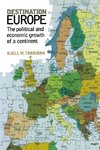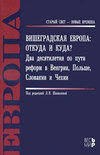
16th century in Europe
Source: Wikipedia. Pages: 27. Chapters: Eighty Years' War, Italian Wars, VD 16, Bishoprics of Chester and Man Act 1541. Excerpt: The Eighty Years' War, or Dutch War of Independence, (1568-1648) began as a revolt of the Seventeen Provinces against Philip... Viac o knihe
Produkt je dočasne nedostupný
13.64 €
bežná cena: 15.50 €
O knihe
Source: Wikipedia. Pages: 27. Chapters: Eighty Years' War, Italian Wars, VD 16, Bishoprics of Chester and Man Act 1541. Excerpt: The Eighty Years' War, or Dutch War of Independence, (1568-1648) began as a revolt of the Seventeen Provinces against Philip II of Spain, the sovereign of the Habsburg Netherlands. After the initial stages Philip II deployed his armies and regained control over most of the rebelling provinces. However, under the leadership of the exiled William of Orange the northern provinces continued their resistance and managed to oust the Spanish armies, and established the republic of the Seven United Netherlands. The subsequent war between the Spanish empire and the Republic continued, although the heartland of the Republic was no longer threatened. The war ended in 1648 with the Peace of Münster when the Dutch Republic was recognised as an independent country. In the decades leading to the war, the Dutch had become increasingly discontent with the Habsburg rule for several reasons. A major cause of Dutch discontent was the heavy level of taxation the population was required to pay, while support and guidance from the government was hampered by the size of the empire. At that time the Seventeen Provinces were known in the Habsburg empire as De landen van herwaarts over, and in French Les pays de par deça ("those lands around there"). In practice this meant that the Dutch provinces were being continually criticized for acting without permission from the throne, while the latter was not practical since any request for permission sent to the throne would take at least four weeks for a response to return. This unrest was further amplified by the presence of Spanish troops brought in to oversee the order in these provinces. While Spain maintained a policy of strict religious uniformity within the Roman Catholic Church, enforced by the Inquisition, a number of Protestant denominations gained ground in the Seventeen Provinces. The Lutheran movement of Martin Luther, the Anabaptist movement of the Dutch reformer Menno Simons, and the Reformed teachings of John Calvin all gained follo
- Vydavateľstvo: Books LLC, Reference Series
- Formát: Paperback
- Jazyk:
- ISBN: 9781157580690


 Anglický jazyk
Anglický jazyk 




 Nemecký jazyk
Nemecký jazyk 
 Ruský jazyk
Ruský jazyk 



